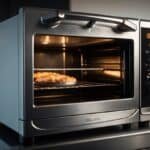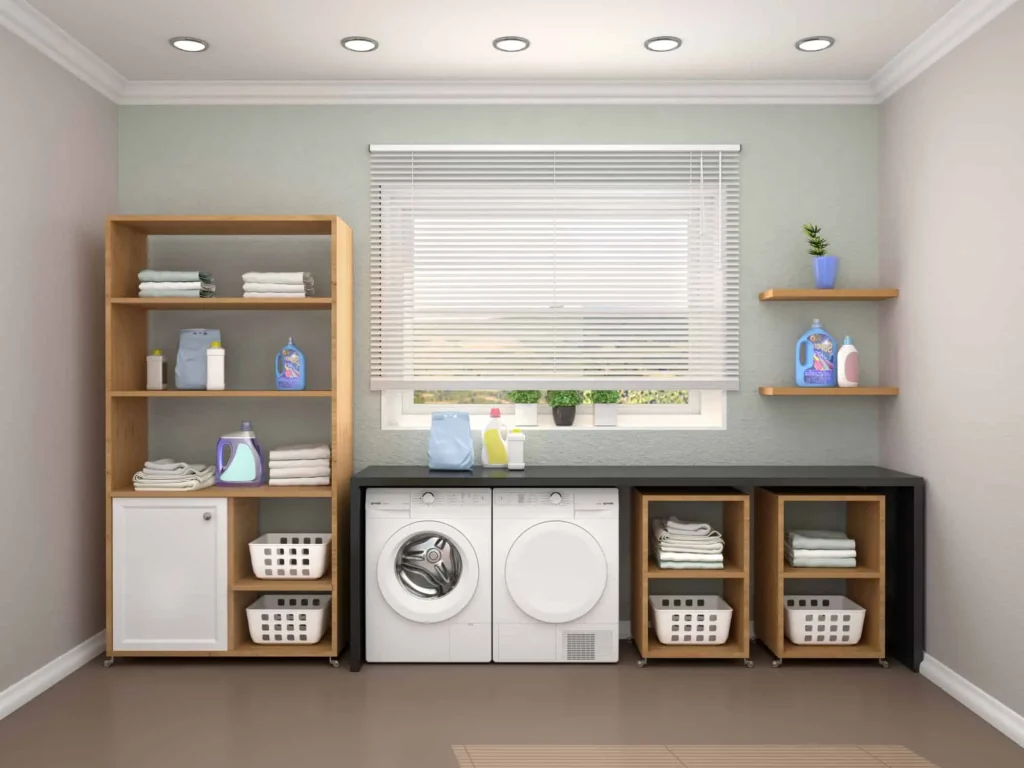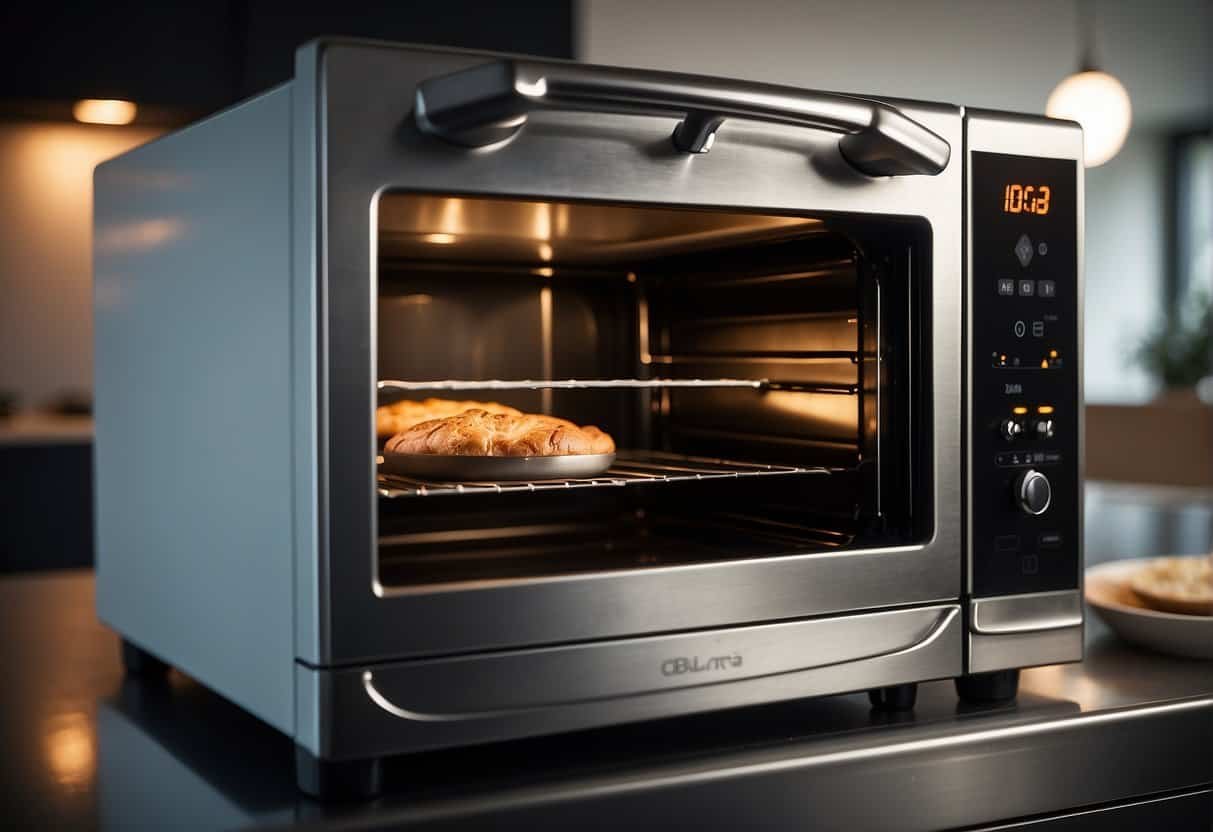Table of Contents
Detecting the smell of propane in your home can be unsettling. As a cleaning expert, I understand the importance of addressing this issue promptly and safely. Has a distinct odor added to it for safety reasons, allowing people to detect even minor leaks.
When you notice a scent similar to rotten eggs or a skunk’s spray, it’s often a sign that you could be dealing with a gas leak.
However, there could be other less dangerous reasons for smelling gas when there is no actual leak present, such as residual odors from a stove that’s been recently extinguished or from outdoor sources.

Safety is paramount when it comes to potential gas leaks. Before investigating the smell further, it’s crucial to ensure all flames are extinguished and to avoid actions that might spark ignition – this includes flipping switches or using electronic devices.
If you suspect a leak, leaving the area immediately and contacting your gas supplier from a safe distance is the best course of action. It’s better to err on the side of caution, as propane is highly flammable and can lead to fires or explosions if not handled correctly.
In my professional experience, adhering strictly to safety protocols is the most effective way to protect yourself and your property while resolving issues related to propane odors in the home.
Understanding Propane and Its Characteristics
Propane is a popular fuel used in many households for heating and cooking. It’s important to know its composition and why it has a distinctive smell despite being naturally odorless.
Composition of Propane
It is a hydrocarbon, meaning it is composed of hydrogen and carbon. In its pure form, it’s a gas that can be compressed into a liquid for easy transportation. This substance is non-toxic and energy-efficient, burning cleaner than many other fossil fuels, which is why it’s widely used as a source of energy.
Role of Odorants in Propane
Although propane is naturally odorless, an odorant called ethyl mercaptan is added to it to make it detectable in case of a leak.
This safety measure is crucial, as it utilizes the strong odor of sulfur compounds, which are reminiscent of rotten eggs or hydrogen sulfide, making it possible for people to recognize and react quickly to prevent accidents.
Sources of Propane Smell in Homes
Propane gas can be an efficient and cost-effective energy source for your home, but it’s important to know that the smell of propane could indicate a range of issues. Below, I’ll break down the common sources related to propane appliances and tank systems that could contribute to this concern.
Propane Appliances
Propane-powered appliances such as stoves, ovens, heaters, and water heaters are integral to many homes. It’s crucial to ensure these appliances are properly maintained and functioning correctly. A faint propane smell could be a sign of:
- Pilot lights: If they go out, small amounts of propane might escape before it’s noticed.
- Improper combustion: This might occur if the appliance burner is dirty or malfunctioning.
- Disconnected or replaced appliances: Small amounts of propane may remain in the gas lines, leading to brief odors.
A detailed inspection of your propane appliances could help you detect the exact source of the smell. If you suspect any malfunction, it’s best to consult a professional promptly.
Propane Tanks and Systems
Another common source of propane smell could stem from the propane tank and the overall system:
- Older propane tanks: Tanks with aged seals or micro-cracks can let out propane gas gradually.
- Low propane levels: Tanks that are near empty might allow gas around the safety valve to seep out and create an odor.
- Regulator failures or hose leaks: These faults can lead to propane escaping from the connections.
Regular inspections of your propane system can identify early signs of wear and prevent a full-scale leak.
It’s important to note that anytime you smell propane in your home, you should take immediate action. Do not ignore the odor as propane can be hazardous.
Open windows to ventilate, turn off the source if it’s safe to do so, and contact a professional or your propane supplier to investigate the issue. Safety should always be your top priority when dealing with propane gas in your home.
Safety Measures for Propane in the Home

Propane, a common fuel used in many homes, requires rigorous safety measures to prevent and react to leaks. My focus here is on the essential steps to detect leaks and how to safely handle propane.
Propane Leak Detection
To effectively detect a propane leak, I recommend installing propane detectors in key areas of the home. If you smell an unpleasant odor similar to rotten eggs, it’s often a sign of a propane leak. It’s crucial to act immediately.
Carbon monoxide detectors are also a valuable addition to the home safety system, as they can alert you to the presence of dangerous gasses resulting from a propane leak.
- Things to check regularly:
- Propane supply valves for signs of wear and tear.
- Connections and hoses attached to propane tanks.
- Immediate steps when a leak is detected:
- Do not panic. Move to a safe distance before taking any further steps.
- Extinguish all open flames immediately; including cigarettes, which can be an ignition source.
- Report the leak to your propane supplier or, if you’re unable to reach them, call the fire department.
Safe Practices Around Propane
Having a propane-powered home means always being vigilant about safe practices to prevent fires or other hazards:
When using propane appliances:
- Ensure any flame produced is blue. Yellow or orange flames indicate an issue.
- Keep flammable materials clear from heaters and cooktops.
For general propane safety:
- Never store spare propane tanks indoors or in an enclosed area.
- Educate everyone in your home on how to shut off the propane supply from the valve located at the tank.
In the event of a suspected gas leak, I cannot overstate the importance of not using any mechanical devices, including light switches and phones, as they can create sparks.
Once you’re in a safe location, contact a certified technician to inspect and repair any gas leaks. Always err on the side of caution and have your propane system inspected regularly to ensure it operates correctly and safely.
Emergency Response to Propane Leaks

In the event of a propane leak, it’s crucial to act swiftly and methodically to mitigate risks and ensure safety. Propane, while an efficient home energy source, can be dangerous if it leaks, as its odor, similar to rotten eggs, signals an immediate concern.
Immediate Steps to Take
- Evacuate: I advise occupants to leave the home immediately, emphasizing not to light matches or operate electrical switches, which could ignite propane.
- Extinguish Flames: If safe to do so, I recommend extinguishing any open flames including stovetops and candles to prevent combustion.
- Shut Off Gas: When practicable, turning off the main gas supply valve on your propane tank can stop the leak. Rotate the valve to the right (clockwise) to close it: Shut off the gas.
Professional Leak Management
- Notify Emergency Services: Once safely away from the leak, I highlight the importance of calling emergency services to address the leak. They are equipped to handle the situation safely.
- Contact Propane Company: As well, it’s essential to call the propane company immediately. They can guide you through further actions to take and schedule a professional inspection: Report the leak.
Maintenance and Upkeep of Propane Systems

Ensuring the safety and efficiency of your home’s propane system is paramount. Routine check-ups and professional servicing play a crucial role in maintaining optimal operation and preventing hazardous situations.
Routine Inspection and Repairs
I recommend a thorough inspection of all propane appliances at least once a year. During these check-ups, you should look for signs of wear and tear, such as corrosion or damage to any appliance components.
It’s important to immediately address any issues ranging from minor wear and tear to more significant faults that could lead to malfunctions. Regular maintenance also includes checking and cleaning burners, as well as verifying that all connections are secure and intact.
Engaging Qualified Technicians
When it comes to repairs, it’s imperative to enlist the help of qualified technicians. These professionals have the training and expertise necessary to handle propane system maintenance efficiently and safely.
If you suspect any problems with your propane appliances or if the system requires repairs, do not attempt to fix these issues on your own.
Faulty appliances not only compromise the efficiency of your system but can also pose serious risks. Always trust a certified technician to diagnose and correct any problems.
Understanding the Risk Factors
When it comes to propane in the household or business environment, understanding the risk factors associated with propane leaks is crucial. Frequent inspections and awareness of the potential consequences can help mitigate the risks.
Frequency of Propane Leaks
Leaking gas appliances should be inspected because they are not a rare occurrence and can lead to gas accumulation in the environment. Regular maintenance checks are my go-to advice for preventing such leaks.
A leak can happen due to various reasons, including damaged gas lines or improperly fitted connections. It’s important to recognize that outdoor gas lines are just as susceptible to damage as indoor ones.
Potential Consequences of Neglected Leaks
Neglecting a propane leak can lead to serious outcomes, including the possibility of an explosion. If a room filled with propane reaches a certain concentration and encounters a flame or spark, it could ignite, causing significant damage to your property or worse.
Moreover, the impact isn’t confined to the immediate area; an explosion can compromise the structural integrity of an entire household or business premises. It’s imperative to act promptly upon smelling gas to minimize any risk of harm.
Regulatory Aspects and Resources
When it comes to detecting a propane smell in the house, it’s vital to be aware of the regulatory frameworks that ensure safety and provide guidance. These standards are set to keep users, suppliers, and the community informed and safe.
Government and Industry Standards
The regulation of propane and its associated equipment, like regulators, is governed by various industry and government entities that establish and revise standards to adapt to new safety findings and technological advancements.
The Underwriters Laboratories (UL) is a notable entity in this field, having recently updated the standards for propane regulators, such as the maximum inlet pressure ratings and requirements for under-pressure shutoff devices.
These regulations are crucial for my operations, ensuring that the equipment provided to customers meets the highest safety criteria.
Additionally, federal regulations impact how propane businesses operate on a daily basis, with organizations like the National Propane Gas Association (NPGA) facilitating the interactions between businesses and federal agencies.
By staying on top of these regulatory affairs, I can ensure that my services comply with the most current safety standards, providing extra assurance to my clients, including schools and universities, government and military installations.
Educational Resources on Propane Safety
Knowledge is key to safety, and there are ample resources available to educate both propane industry professionals and consumers.
Reliable educational content on the appropriate response to propane odors inside a building is valuable to share with clients, ensuring that they understand the importance of properly responding to potential leaks.
For instance, guidelines on identifying signs that a propane system requires maintenance are instrumental in preventing accidents before they occur.
Safety is also a prime concern for official organizations, such as the Centers for Disease Control and Prevention (CDC), which provides resources and recommendations regarding propane and natural gas, emphasizing the importance of using proper detection equipment rather than solely relying on smell.
This advice is particularly relevant to fire departments, but it’s also information I impart to universities, military bases, and any institution with a propane system through materials like the NIOSH guidelines.
Finally, ensuring that residents and businesses know the proper steps to take, like shutting off the gas and reporting the leak to their propane supplier or emergency services, is essential.
This proactive approach aligns with the protocol advised by Foster Fuels Inc., which suggests a series of steps to manage a potential gas leak effectively.










